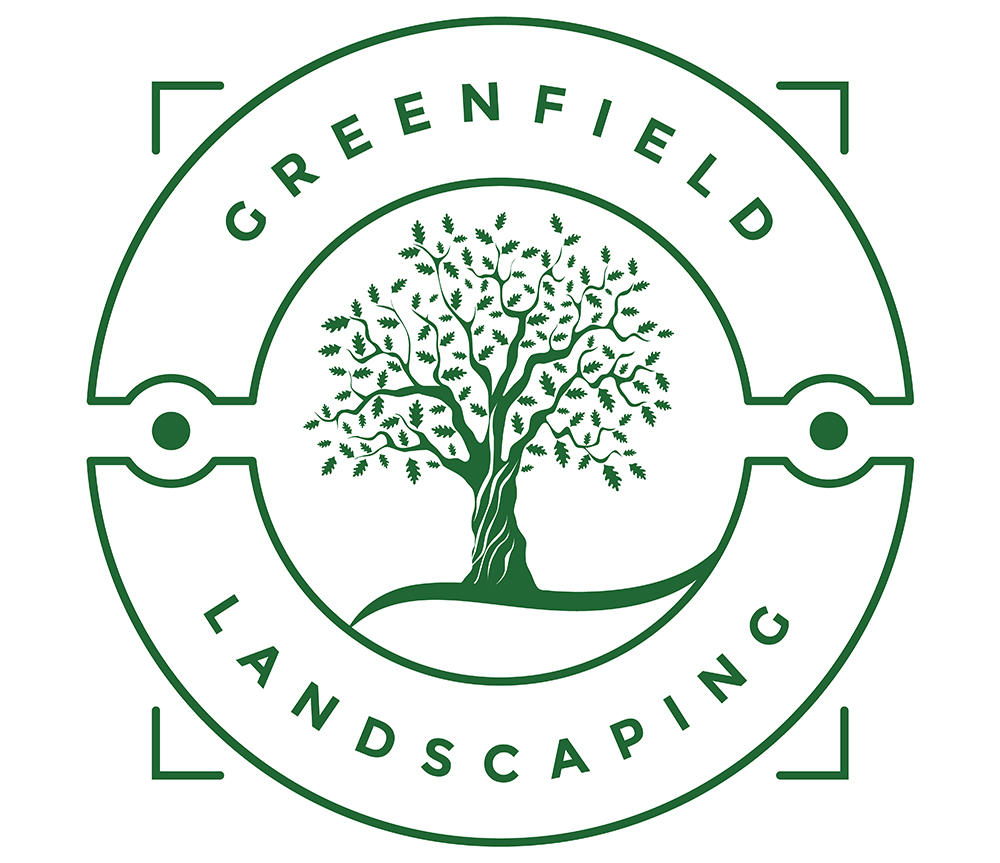Does your property feature challenging slopes, uneven terrain, or persistent erosion issues? Alternatively, you could envision a more functional, multi-tiered outdoor living space. The answer often lies in strategically installing a retaining wall. At Greenfield Landscaping, we specialize in designing and constructing high-quality retaining walls that are not only structurally sound but also enhance the aesthetic appeal and usability of your outdoor environment.
Retaining walls are much more than just barriers; they are engineered structures designed to hold back soil and create distinct, level areas in sloped landscapes. For homeowners, they can transform an unusable hill into a terraced garden, a flat lawn, or a welcoming patio. For businesses, managing erosion on commercial sites, creating usable parking areas, or simply adding a refined, organized look to the property’s exterior can be beneficial. No matter the scale or complexity, a well-built retaining wall from Greenfield Landscaping offers both practical solutions and lasting beauty.
Why Invest in a Retaining Wall? The Core Benefits
The advantages of integrating a retaining wall into your landscape are numerous and impactful:
- Erosion Control and Soil Stabilization: This is often the primary function. Retaining walls prevent soil runoff, minimize erosion, and stabilize slopes, protecting your property and existing structures from the damaging effects of shifting earth and heavy rainfall.
- Creating Usable Space: Sloped yards can be challenging. A retaining wall allows you to create flat, functional tiers for gardens, patios, and play areas or even expand usable lawn space where it wasn’t possible before.
- Enhanced Aesthetics and Property Value: Beyond their practical utility, well-designed retaining walls add significant visual interest and architectural character to a landscape. They can define garden beds, frame pathways, and add depth, boosting curb appeal and overall property value.
- Effective Drainage Management: When properly designed and installed, retaining walls can be integrated with drainage systems to manage water flow across your property, directing it away from foundations and preventing waterlogging.
- Defining Landscape Features: They serve as natural boundaries, helping to organize and define different sections of your garden or yard, resulting in a more cohesive and intentional landscape design.
Your Retaining Wall Questions Answered
Considering a retaining wall project? Here are some common questions we address at Greenfield Landscaping:
Q: What materials are best for a retaining wall?
A: The choice depends on aesthetics, budget, and structural needs. Common materials include natural stone, concrete blocks (used in segmented retaining wall systems), timber, and poured concrete. Each has unique benefits in terms of appearance, durability, and cost.
Q: How vital is drainage behind a retaining wall?
A: Critical! Proper drainage is crucial for the longevity and stability of a retaining wall. Without it, water pressure can build up behind the wall, leading to cracking, bulging, or even failure. Our designs always incorporate effective drainage solutions.
Q: Do I need a permit for a retaining wall?
A: Often, yes. Local building codes typically require permits for walls exceeding a certain height (e.g., 3-4 feet). We can help you navigate local regulations and ensure your project complies with all requirements.
Q: How long do retaining walls last?
A: With proper design, quality materials, and expert installation, a well-built retaining wall can last for many decades. Concrete and natural stone walls, in particular, are known for their exceptional durability.
Q: What affects the cost of a retaining wall?
A: Cost varies based on height and length, material choice, site access, soil conditions, and the complexity of the design (e.g., curves, multiple tiers).
For more detailed information on the engineering principles behind retaining walls, you can explore resources such as this overview on the types of retaining walls and their mechanics. If you’re curious about the impact of soil on your landscape projects, consider learning more about soil properties and the importance of erosion control.
Ready to stabilize your landscape, prevent erosion, or create beautiful new spaces? Contact Greenfield Landscaping today for a consultation.

